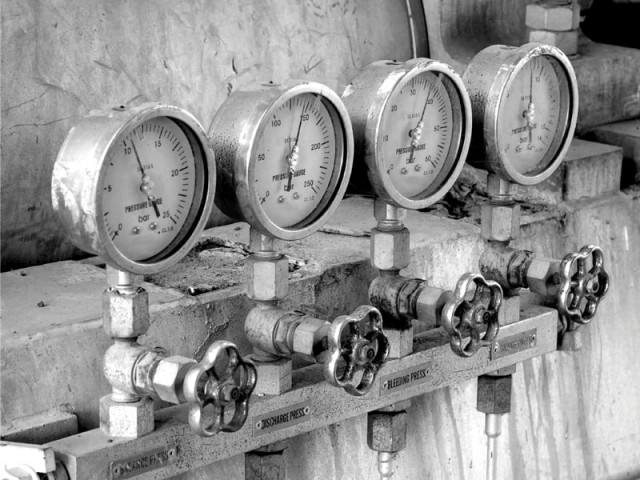Fertiliser sector wants gas in exchange for price cuts
Govt, industry working out a mutually beneficial plan to ease prices.

Fertiliser sector wants gas in exchange for price cuts
The government and the fertiliser industry are working out a mutually beneficial plan to reduce the price of urea from Rs150 to Rs300 per kilogramme (kg). A subcommittee of the Economic Coordination Committee (ECC) had suggested that prices can be lowered by either ensuring uninterrupted gas supply to fertiliser plants or cutback on taxes levied.
The fertiliser industry says that price reduction can be viable if the gas infrastructure development surcharge is cut by Rs68 per million British thermal unit (mmbtu) and general sales tax is reduced by 3% to 13%. If these measures are taken, then urea can be brought down from Rs1,659 per 50-kg bag to Rs1,500, said sources in the fertiliser sector.
The deputy prime minister and adviser to the prime minister on petroleum and natural resources agreed to the proposal of rationalising taxes totalling Rs500 per bag on the request of the fertiliser industry during the ECC meeting.
Farmers complain that urea is expensive and the price reduction will not help them much as by the time the fertiliser gets to the farmers it becomes at par with the price of imported urea. Thus, growers will not benefit from the move.
Earlier, the ECC constituted a committee for suggesting a mechanism of provision of subsidy to benefit the farmers, bring down fertiliser prices and provide gas to the industry. The ECC further directed the committee to submit its recommendations in the next meeting.
It was discussed during the meeting that urea off-take during the Rabi season of 2010-11 was 3.2 million tons, whereas prices hovered between Rs830 and Rs1,155. Similarly, urea off-take for the Rabi season 2011-12 was 2.7 million tons while the price oscillated between Rs1,580 to Rs1,795, where off-take decreased 14.2%, negatively affecting wheat productivity.
A regression of monthly off-take with monthly prices for the period January 2010 and September 2012 indicates that at the subsidised price of Rs1,500, the off-take is likely to be 2.77 million tons against 2.71 million tons previously. With October 2012 sales of urea being close to 250,000 tons, the total subsidy amount for the remaining season will be approximately Rs7.5 billion.
The deputy prime minister had impressed upon the petroleum minister to supply gas to the fertiliser industry so they can reduce prices. The industry representatives agreed to this proposal.
However, they suggested that if gas cannot be provided, the government may give subsidy similar to the one where it had already abolished sales tax on tractors in order to give relief to the farmers. They suggested that sales tax and development surcharge should be waived to a certain level.
The government assured that the petroleum ministry will ensure supply of 100 million cubic feet per day (mmcfd) of gas to produce 100,000 tons of urea, while 100,000 tons will be imported to bridge the supply gap during Rabi season of 2012-13.
Published in The Express Tribune, November 29th, 2012.



















COMMENTS
Comments are moderated and generally will be posted if they are on-topic and not abusive.
For more information, please see our Comments FAQ